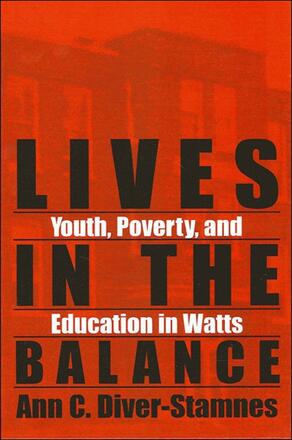
Lives in the Balance
Youth, Poverty, and Education in Watts
Alternative formats available from:
This compelling examination (by a former high school teacher in Watts, Los Angeles) shows how poverty affects the lives of young people.
Description
This book is a wake-up call to the nation dealing with the realities of the lives of young people living in poverty in the inner city. The perspective is unique: it combines the voices of students attending a high school in the Watts community of Los Angeles with current research to create a clearer picture of the lives of people who live in poverty and some of the factors which serve to perpetuate that poverty. The author focuses on issues cited by individuals who blame the poor for their own plight as evidence that those living in poverty are responsible for the state of their lives: academic failure, problematic family dynamics, adolescent maternity, child abuse, substance abuse, and gang membership. She debunks the myths and negative stereotypes about inner-city youth and challenges those blaming the poor, thereby providing the reader the opportunity to explore the socio-political realities of living in poverty.
Ann C. Diver-Stamnes is Associate Professor at Humboldt State University.
Reviews
"Lives in the Balance literally explodes with images of youth culture within inner-city settings. Through observation and interview techniques, the author's close-up look at the effects of poverty on children's lives is staggering. Just the opportunity to hear 'insider' perspectives provides insights that other books with largely 'outsider' perspectives cannot. Not only has Diver-Stamnes taught in Watts schools, making her somewhat of an insider, but she also lets the reader meet the real insiders—the parents and children/youth of Watts who are her key informants—the mothers' perspectives, especially, become an important point of illumination. " — Diane DuBose Brunner, Michigan State University
"The author's comprehensive coverage of the various social, political, and economic aspects of community impacting on the lives of the children and youth of Watts is very insightful. I especially was impressed by the author's ability to provide a social-political perspective that did not demean the experiences of her students and their families, but rather reaffirmed the life spirit that remains in the community of Watts despite the overwhelming social and economic problems faced by these people. By better understanding the lives of children and youth in urban poverty from 'the inside out,' perhaps professionals from alternative life experiences will be better able to 'empathize' with the experience of their students. " — Christine C. Givner, California State University, Los Angeles